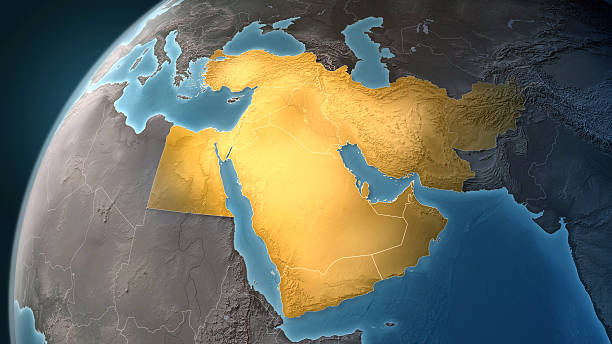The Middle East has witnessed many Western military interventions since the end of the First World War. Two recent ones are particularly significant in drawing lessons for the future.
The Iraq-Iran War started on September 22, 1980. The war lasted eight years. In 1990 Saddam Hussein made his biggest mistake by ordering the invasion of Kuwait. The US-led military campaign forced Iraq to withdraw. The people of Iraq suffered for decades under sanctions. On March 20, 2003, the US joined by the UK and several coalition allies invaded Iraq. The invasion which was not sanctioned by the UN not only led to the collapse of the Ba’athist government but the Iraqi state as well.
Allegations that the invasion of Iraq was launched under false premises continued for years. In 2009, a British public inquiry into the nation’s role in the Iraq War was announced by Prime Minister Gordon Brown. Seven years later, on July 6, 2016, Sir John Chilcot summarized the conclusions of the inquiry. He said that the judgments about the severity of the threat posed by Iraq’s weapons of mass destruction were not justified; despite explicit warnings, the consequences of the invasion were underestimated; and the planning and preparations for Iraq after Saddam Hussein were wholly inadequate. Even if one were to ignore the inquiry, the current picture tells it all.
Then came the Arab Spring.
Libya’s uprising began in February 2011 after security forces in the eastern city of Benghazi opened fire on a protest.
Although the West rejoiced in the call for democratic rule in the Middle East, the measures governments took to quell the revolts caused “grave concern” in Western capitals. Thus, Libya became the target of a “UN-sanctioned” intervention. After all, Qaddafi had few friends. Western leaders had put up with him for economic interest. Libya was very close to Europe and an easy target for military intervention. A successful operation in Libya was deemed desirable by the French and British governments for internal/external political purposes. After some hesitation, the Obama administration joined them.
On March 17, 2011, the Security Council adopted Resolution 1973 with China, Russia, Brazil, India, and Germany abstaining. The resolution demanded an immediate ceasefire and an end to all violence; called for the facilitating of dialogue; and authorized member states to take all necessary measures to protect civilians while excluding a foreign occupation force of any form on any part of Libyan territory.
On 19 March 2011, a conference in Paris, held under French, British, and US leadership, decided to start air operations against Qaddafi’s forces “to protect civilians”. Within hours air strikes began. It soon became crystal clear that the purpose of the intervention was regime change. In other words, the intervention went beyond the letter and spirit of Resolution 1973.
Had a determined attempt been made for a political solution more Libyan lives could have been saved. The culture of vengeance among different groups could have been discouraged. Libyan arms could have been handed over to the legitimate security forces of the new regime. Today, as everyone agrees, Libya is a failed state.
And interestingly, former French president Nicolas Sarkozy who spearheaded the intervention in Libya will be tried in 2025 over allegations that he took money from Muammar Gaddafi to fund one of his election campaigns, prosecutors said in August.
On September 10, Storm Daniel hit northeastern Libya with torrential rains, and flash floods affecting multiple cities and towns. Thousands are missing. Reportedly, the death toll could reach up to tens of thousands. And appallingly, Libya is still fighting a treasonous internal war with external meddling. “Treasonous” because the people of Libya need everything but a civil war. Most importantly, they need unity.
Have the loss of life and devastation caused by the floods led to “grave concern” in Western capitals like in early 2011? No.
Last Friday, CNN reported that Lampedusa has seen an influx of migrants with 7,000 people arriving in two days, prompting its mayor and the UN refugee agency to warn the Italian island is becoming overwhelmed. According to CNN, many of the latest people to arrive have fled political instability in Tunisia. In previous years, most came from Libya. It seems that the lack of a Libyan Coast Guard was also a problem. Yesterday, Prime Minister Meloni and European Commission President, Ursula von der Leyen met in Lampedusa. The former referred to migration from Africa as a “threat to the future of Europe”. The latter offered support for “exploring options to expand existing naval missions in the Mediterranean, or to work on new ones.” Reportedly, the set of immediate actions she announced appeared to stop short of a naval blockade.[i] That may come too someday. After all, she is a former defense minister whose views must be further sharpened by the war in Ukraine. Do the two leaders remember that migration was not such a big issue a decade ago?
Saddam Hussein and Muammar Gaddafi were tyrants. But the tragedy is today the people of Iraq and Libya are no better off than before. What does this say about the Western interventions in the Middle East? Are they failures or achievements? Unfortunately, an honest answer might depend on one’s vantage point. But the obvious conclusion is that military interventions are not the best way to “promote democracy”. Moreover, they raise endless questions about their real purpose.
————————————————————————————————
[i] https://www.france24.com/en/live-news/20230916-eu-scrambles-to-address-italy-island-migrant-surge










